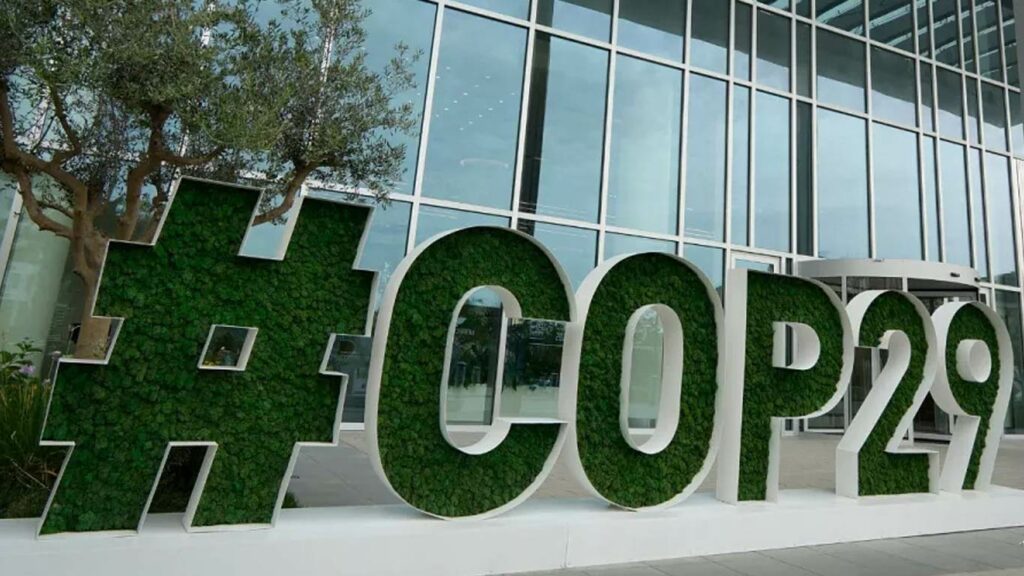India’s Push for Climate Justice: COP29 Discussions Center on Fair Transition and Trade Equity
At COP29, India has positioned itself as a leading advocate for climate justice, calling on the international community to address systemic inequities that disproportionately affect developing countries. From criticizing unilateral trade measures to advocating for increased climate finance, India has made it clear that the principles of fairness and equity must guide the global transition to a low-carbon economy.
Unilateral Measures: Hindering Global Progress
A central issue raised by India at COP29 has been the imposition of unilateral trade measures, such as carbon tariffs, that place unfair burdens on developing countries. India has pointed to the European Union’s carbon border tax as a prime example of such coercive measures. These policies, India argues, undermine international trade and restrict the ability of developing nations to access markets on equal footing.
During the initial days of COP29, China, on behalf of the BASIC group, called for discussions on unilateral trade measures to be added to the official agenda. Though initially delayed, India reiterated this request, emphasizing the need for a broader conversation on the negative impacts of such policies on the Global South.
India’s statement at COP29 stressed that “unilateral coercive measures” by developed countries not only restrict trade flows but also exacerbate existing economic challenges faced by developing nations. Such measures, India argues, create a barrier to equitable development and hinder efforts to address climate change in a balanced manner.
Just Transition: A Broader Approach is Needed
India also voiced concerns about the narrow application of the “Just Transition” concept, particularly with regard to the formulation of Nationally Determined Contributions (NDCs). India believes that climate action should remain “nationally-determined,” as stipulated by the Paris Agreement, and opposes efforts to impose rigid, one-size-fits-all frameworks on developing countries.
While India supports the idea of a just transition to low-carbon economies, it stresses that this transition must take into account the unique circumstances of each country, including the need for economic growth and poverty reduction. India has also called for the broader social and economic implications of the transition to be considered, including issues like job losses and social inequality.
The Missing Element: Climate Finance
Another critical issue that India raised at COP29 is the failure of developed countries to meet their climate finance commitments. Under the Paris Agreement, developed nations are expected to provide financial support to developing countries to help them mitigate and adapt to the impacts of climate change. However, India pointed out that these financial commitments remain largely unmet.
“Climate finance is a crucial enabler for the just transition,” said Nandan. Without adequate financial support, developing countries like India will struggle to achieve their climate goals, leaving their most vulnerable communities exposed to the devastating effects of climate change.
India’s Vision: A Fair, Equitable Global Transition
India’s contributions at COP29 have underscored the need for a truly global and cooperative approach to climate change. The country has called for a frank discussion on issues like intellectual property rights for green technologies and the historical carbon debt owed by developed countries.
In a world where climate change is an existential threat, India is advocating for policies that ensure the Global South is not sidelined in the transition to a sustainable future. As Nandan said, “Global cooperation is the key to unlocking a truly equitable and just transition.”
India’s Continued Advocacy for Climate Justice
India’s interventions at COP29 reflect the country’s deep commitment to a fair, just, and equitable global climate framework. As the world faces the growing impacts of climate change, India continues to call for international cooperation, greater financial support, and fairer trade policies. The ongoing discussions at COP29 could pave the way for more inclusive climate policies that address the needs of developing countries while ensuring that the global transition to a low-carbon economy benefits all.
